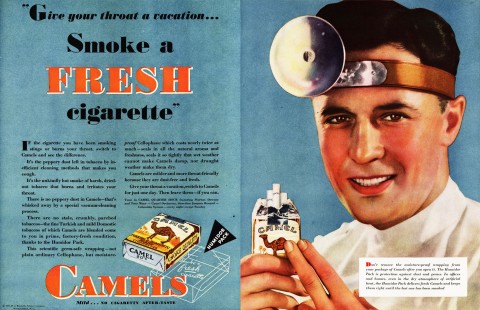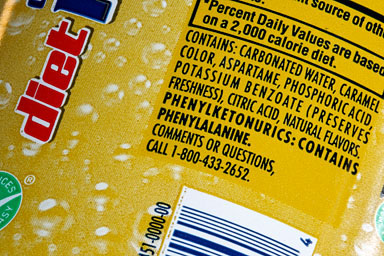— Part 2 of a 2-part investigation on GMO Labeling and HR 1599 —
Today’s post is a continuation of our look into The Safe and Accurate Food Labeling Act, or HR 1599, that passed July 23, 1015 . Click here to read Part 1.
If you’d prefer, most of this information is also found in GMO TRUTH PODCAST #8, available here.
Supporting Links
The text of the Act itself: https://www.opencongress.org/bill/hr1599-114/text
Videos of the two hearings:
Hearing #1, December 2014 (legislation was slightly different back in 2014):
https://www.youtube.com/watch?t=9427&v=mlfpViqjJTE
Hearing #2, June 2015:
https://www.youtube.com/watch?v=poZLkGKpmoE

In our 1st post, we documented what a dog and pony show the House of Representatives hearings turned out to be. Today, we’ll dig into a few key parts of the legislation itself.
And remember, one main point of HR 1599 was to prevent patchwork GMO labeling laws across different states from potentially creating a big mess for food manufacturers.
NO VERMONT GMO LABELING
That said, HR 1599, instead of creating a labeling standard that works more hand-in-hand with the laws 3 states have already passed, essentially stomps on them like King Kong stepping on a gumball. The call to label GMO foods goes completely unanswered here. Instead, we get this:
Subject to paragraph (2), no State or political subdivision of a State may directly or indirectly establish under any authority or continue in effect as to any covered product (as defined in section 291 of the Agricultural Marketing Act of 1946, as added by section 201 of this Act) in interstate commerce, any requirement for the labeling of a covered product indicating the product as having been produced from, containing, or consisting of a genetically engineered plant, including any requirements for claims that a covered product is or contains an ingredient that was produced from, contains, or consists of a genetically engineered plant.
And that’s really the kicker – that’s the direct punch in the face to Vermont, Connecticut, and Maine, which pretty obviously was the main intent of this bill, to say that no state can create their own GMO labeling law.
LIVESTOCK FED GMOS
Then there’s a section that will likely ruffle some feathers, but it’s difficult to say for certain, because it seems to directly conflict with the section right above it. Here they’re talking about what it takes for a product to be sold or labeled as produced without the use of genetic engineering. And in the first section we see this:
“in the case of a covered product derived from livestock that is marketed in the United States for human consumption, the covered product and the livestock, products consumed by such livestock, and products used in processing the products consumed by such livestock shall be produced without the use of products derived from genetic engineering”
But in the section that follows, it sounds like they completely negate that, by saying:
“In the case of a covered product derived from livestock that is marketed in the United States for human consumption, the covered product shall not be considered to be genetically engineered solely because the livestock consumed feed produced from containing, or consisting of a genetically engineered plant.”
Honestly, I’m at a loss on this one. There’s probably some technicality in here that I’m missing, but either way, I would think that this 2nd section doesn’t belong here. If you’re trying to certify a food as Non-GMO, then livestock fed GMO feed most certainly would not qualify as non-GMO. So if that’s what they’re trying to sneak in here, yeah that’s probably going to cause a bit of an uproar.
WHAT IS “NATURAL”?
The only other thing I’ll say about the legislation is that I’ve read in multiple places that this bill would allow bogus “natural” claims on food, but I don’t see anything in here that speaks to that directly. What I do see regarding the natural claims, is that it’s saying –
“the Secretary of Health and Human Services shall issue proposed regulations”
That’s essentially asking for clarification on all the natural terms in use now, and it references another document. But I’ve searched through that other document, and there’s nothing in it regarding natural, GMO, etc.
Regardless, I think it’s pretty easy to understand people’s concern if a plant is modified with genes imported from another species (which we don’t regularly see in other forms of breeding), and then food products from that plant are still labeled NATURAL. That’s where a good amount people will likely feel, even if it is completely safe, that we’ve crossed the “natural” line. So if the claims I’ve read are correct, and those GE foods can still get the word NATURAL stamped on them, that will probably raise some eyebrows too.
So for HR 1599, we’ve talked about what makes sense, and what I think we should be concerned about. Putting all that together, while I think most people will agree that a federal standard is needed, I just don’t think this legislation is it. I think it’s a cop out, and it’s extremely one-sided. Here’s why…
THE FDA ISN’T PERFECT
There are disturbing health trends that are off the charts different from what we saw just a couple of decades ago, and that’s something we’ll get into in a future podcast as our research progresses. But for now, there are plenty of reasons to say “Wait a minute, look at these numbers, something is very likely going on with our food supply, so let’s figure it out.”
And when it comes to the FDA, they aren’t infallible, not even close. Let’s be honest, there’s a gargantuan task in front of them every day, just like there is for the EPA. Take one look at the FDA’s recall website, and you’ll see all the things they have to police to keep us safe… and they don’t always succeed. Look at the drug recalls for drugs that were approved, and deemed safe, drugs that actually had detailed trials done on humans, something our “new in the last two decades” genetically engineered corn, soy and the rest have not. Ever.
Plus, for the drugs that were recalled, we had trials done on humans and we STILL erred.
When we we move into the science on all this for The Walk a Mile Project, and talk about the studies that have been done and haven’t been done, that part of our documentary that will be extremely important. So of course I won’t sit here right now and tell you either way that we know, because we haven’t dived into it yet.
But regardless of what people like some of our representatives in the house have quoted on this “scientific consensus”, there is enough noise and concern, and enough smoke that may or not lead to fire, that no, sorry, we won’t just accept this quick consensus stamp without digging into it… without walking a mile in some scientists’ shoes. There are questions and concerns, this affects millions of people, so in the process of creating a responsible documentary, you can bet we’ll be investigating.
And no, it doesn’t mean we’re rejecting the science, not at all. I’m not sitting here telling you that GMOs are going to kill you or that they’re even unsafe at this point.
What I am saying is that I haven’t seen anyone dig deep into this all the way, to make sure what we’re being told about the science is 100% true and infallible from either side.
So we will.
And if anyone thinks we’re crazy for doing that, for just wanting to make sure – especially when a company like Monsanto has been such a huge driving force behind all this – then they need to go back and look at the 30s, the 40s, the 50s and the 60s where we had decades of PCB use that never should have happened. It wasn’t like we didn’t have any scientists on Earth for those 4 decades. And we did it again in Vietnam with Agent Orange. And for crying out loud, we used to run ads for tobacco with doctors in them!! We are far from perfect!

I know we didn’t have the regulatory agencies in place then, but even with them in place, we miss things. There’s a lot going on. Go ahead and ask the FDA about Vioxx, and the people who died from it while the drug was on the market for 5 years. And that’s only ONE example of many.
We should all strive to move forward as the human race, to evolve, to get better and better at things – and to generally improve our existence (although sometimes we’re just fighting to preserve it). But we won’t be perfect. Ever. That’s just not us.
One of our Advisory Committee members at Change the World Films has a degree in genetics, and he and I have talked about this at length – from a pure scientific standpoint, there are noble aims to genetic engineering, which is one of the assumptions we work on here with the documentary. We are not here to rip on the concept of genetic engineering. You’ll see that clearly as we move forward. But what we are here to do, is to make sure that we haven’t made a seriously wrong detour by veering away from those noble aims. Was it a noble aim to inextricably tie an herbicide to a GMO seed? And will we wind up paying for that?
THE RIGHT WAY TO LABEL
So to wrap this up, specifically related to HR 1599, there are too many questions, which were almost all ignored in the hearings, and I really think they missed the mark here. When there are concerns rising over the rampant use of glyphosate, in the very least you’d like to see them put the whole GMO labeling issue on hold while an independent investigation is launched.
But as an alternative solution, you can come up with a label that actually states exactly what’s in the product, not just slamming some random contains “genetically modified ingredients” statement on there. I think the right way to handle this is to come up with a meaningful label, which I haven’t even heard anyone mention. And what I mean by a meaningful label is that it tells the consumer what’s in the product. Come up with a term that makes sense for those who WANT to know about it, like “Contains Bt Corn”, or use an abbreviation like GR for glyphosate-resistant, and then you put “Contains GR Soy” on the label.
That may sound crazy, but let’s be honest, it’s a lot LESS crazy than the label you see right now on diet foods and sodas that contain aspartame. Do you remember this one? It says:
“Phenylketonurics: Contains phenylalanine.”
Here’s what the Mayo Clinic says about it –
Phenylalanine isn’t a health concern for most people. However, for people who have the genetic disorder phenylketonuria (PKU) or certain other health conditions, phenylalanine can be a serious health concern.
http://www.mayoclinic.org/healthy-lifestyle/nutrition-and-healthy-eating/expert-answers/phenylalanine/faq-20058361

How many of you have ever had a diet soda and even gave that label a second thought? I’ve never met anyone that has PKU, but I do know someone that is blatantly allergic to GMO soy. Do you think she might appreciate a label that says “Contains GR Soy”. In the very least, it could say “contains GE soy”, or spell it out and say “contains genetically engineered soy”. But honestly, I don’t think it’s right to generalize across the whole spectrum of genetic engineering.
It’s something we should get better and better at over time, and I think it’s a much more reasonable request to label specifically. If you only stamp “contains genetically engineered ingredients” on a label, for a person who is allergic to GMO soy, that doesn’t tell her enough information. It just means that if there’s any soy in the product at all, she now has to avoid it entirely.
For The Walk a Mile Project, HR 1599 is not an answer. And since they had someone from the FDA at that first hearing, and yet I heard no mention of any GMO allergies or health concerns whatsoever… I think it’s time we open up a new avenue here for documenting what might be going on.
So, from this point forward… if you or anyone you know have had a health concern or allergy that you feel is related to a particular food where you’re concerned a GMO ingredient may be the problem, we want you to let us know. And if you’ve actually isolated a particular GMO ingredient that’s been causing you a problem, we definitely want you to let us know that. It’s important to get our finger on the pulse of what’s happening, and maybe it’s much ado about nothing, maybe it’s not. But this is your chance to let us know, and to be a part of The Walk a Mile Project, and to possibly even be a part of the documentary itself.
So we’ve created a special page where you can submit your story to us:
https://walkamileproject.leadpages.co/gmo-allergy/
You can just give us your email address and what the problem is if you’d like, or if you’re interested in potentially being in the documentary, just click YES on the form to let us know, and we’ll get in touch with you if needed.
And remember, we’re just interested in documenting potentially GMO-related health or allergy problems here, that’s the full extent of it. So try to be as brief and clear as possible. And by the way, our email list is only ours, we don’t ever sell it or tolerate spam. We’re a nonprofit organization, so we’re not interested in any of that.
And look we’re not doing this to take sides. Events over the past several months have pointed to a key part of this controversy that’s obviously being ignored by our lawmakers, which was made crystal clear in that 2nd hearing when glyphosate was just completely left out of the discussion. There’s no excuse for that sort of negligence when passing laws for our country.
So we’re doing something they’re obviously afraid to do, strangely enough, which is to err on the side of caution. I hope you’ll join us.






